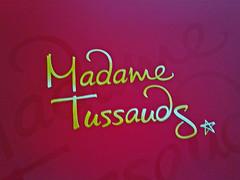In fiction, we strive for realism. Even if our characters are using wands or warp drives, we still want them to sound and act like real people.
You know, sort of.
In How to Write a Damn Good Novel, James N. Frey points out that fictional characters aren’t quite the same as real people:

Ficitonal characters—homo fictus—are not . . . identical to flesh-and-blood human beings—homo sapiens. One reason for this is that readers wish to read about the exceptional rather than the mundane. Readers demand that homo fictus be more handsome or ugly, ruthless or noble, vengeful or forgiving, brave or cowardly, and so on, than real people are. . . .
Homo fictus is an abstraction meant to project the essence, but not the totality, of homo sapiens. (1-2)
One of the chief ways homo fictus differs from homo sapiens is that homo fictus must make sense. Says Frey, “Homo fictus . . . may be complex, may be volatile, even mysterious, but he’s always fathomable. When he isn’t, the reader closes the book, and that’s that” (2) .
Another big turn off is unrealistic dialogue—dialogue that doesn’t sound natural at all, or dialogue that sounds too much like real life (i.e. boring!).
We all fall prey to these sins sometimes. And sometimes we try to justify them with the argument that they’re not just realistic, they’re real. That’s not a good enough excuse. As Nathan Bransford puts it,
Occasionally I’ll point out dialogue or events that aren’t working, and someone will protest, "But this is how people actually talk," or "This actually happened."
Writing isn’t about capturing real life as it actually happens. We have, well, real life for that.
Instead, writers have to elevate life and add spices and all the rest. Writers interpret real life, elevate it, reorder events, and serve up something perfectly balanced and ready for public consumption.
While we want to have the appearance of reality, we don’t really want an exact copy of it in our fiction. In real life, things don’t make sense, people do crazy things, conversations meander and fizzle out without saying much, and causation and purpose in the events of the world elude us. “Fixing” those things is one of the big benefits of reading fiction.
What do you think? How else are fiction and reality different?
Photo by Nadia


I think one of the biggest differences is the idea of plot. We formulate a series of events that usually follow a basic pattern, building up to a finale. In reality, life never functions like that. There will be moments of drama interspersed among the everyday events of life. Sometimes they get resolved and sometimes they don’t. Sometimes there is more to follow and sometimes it is just a one time thing.